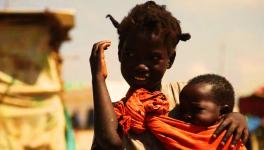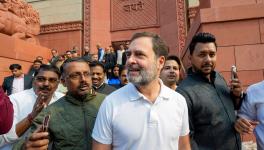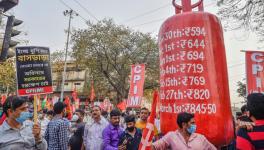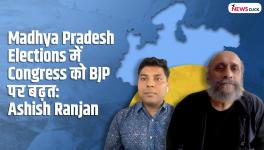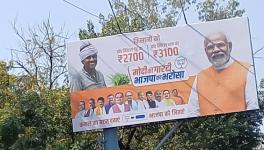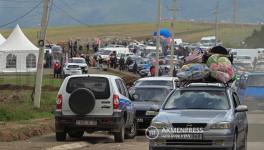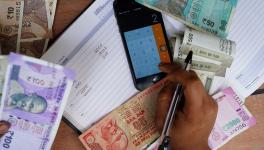Bulgaria's Election: What's in Store Ahead of a Difficult Winter?
"We want to finish our work" is the motto of the We Continue the Change (PP) party
Political stability has been rare in Bulgaria since the end of the communist dictatorship in 1989/90. But even by Bulgarian standards, things have been particularly unstable in recent years. Voters in Bulgaria will head to the polls on October 2 to elect a new parliament for the fourth time in only 18 months.
After the scheduled parliamentary election in April 2021 and two snap elections since then, this will be the third early poll in succession. Whether it will bring an end to the country's political crisis remains to be seen.
Kiril Petkov's pro-European government had been in power for only six months when it narrowly lost a vote of no-confidence in June
The early election was called after the liberal pro-reform government of Prime Minister Kiril Petkov was toppled in June 2022. It came to power in late 2021 and was supported by a coalition of two liberal parties, including Petkov's centrist We Continue the Change (PP) party, the former communist Bulgarian Socialist Party (BSP) and the populist There is Such a People (ITN) party.
ITN withdrew its support for the four-party coalition in early June. Petkov's government lost a vote of no-confidence on June 22 and the coalition collapsed.
Uncertainty all round
Now Bulgaria is once again asking itself whether it will get a government with a working majority that can guide the country through a difficult winter and numerous challenges that include the Ukraine war, inflation and high energy prices.
At the moment, it doesn't seem likely: The vast majority of opinion polls are predicting a parliament with between six and eight parties.
Party of former prime minister ahead in the polls
The winner of the current political crisis is the Citizens for European Development of Bulgaria (GERB) party of the former three-time prime minister Boyko Borissov. GERB and Borissov, which formed the opposition in the previous parliament, are partly responsible for the current crisis. In power for over a decade until the spring of 2021, their time in government was marked by political turmoil and numerous corruption scandals and littered with many broken pledges of reform.
A "Euro-Atlantic" could work, but only without former Bulgarian Prime Minister Boyko Borissov
Now, Borissov's party is once again ahead in the opinion polls: GERB has approximately 24%, putting it about 8 percentage points ahead of Petkov's PP. Although Borissov is hoping for a clear win, his party is unlikely to get a majority and will need a coalition partner.
Coalition government very likely
In terms of its foreign policy, GERB is strongly Euro-Atlantic in its outlook. However, the other two parties in the race with a similar position, Petkov's PP and the liberal conservative Democratic Bulgaria (DB), don't want to form a government with GERB because of the accusations of corruption still hanging over Borissov's head.
That's why there has been much talk about a coalition government with GERB but without Borissov. Political scientist Daniel Smilov is skeptical. In an article for DW's Bulgarian service, he wrote that "GERB's only concern is to protect the job of its chairman. And as long as Borissov is party leader, it will be impossible for GERB to draw a line under its own past."
Dangerous nationalism
So on paper, at least, a "Euro-Atlantic coalition" would be possible, but only without Borissov. His party doesn't have many other options because after 12 years in power, the remaining small parties do not consider GERB a viable partner.
At the other end of the political spectrum is a dangerous nationalism coupled with strong pro-Russian sentiments: a strange mix that is driving many Bulgarians into the arms of the radical right-wing Vazrazhdane (Revival) or might even persuade them to stay at home on polling day. Vazrazhdane, which is led by the authoritarian Vladimir Putin supporter Kostadin Kostadinov, who is adamantly opposed to both the EU and NATO, might even become the third largest party in parliament.
Supporters of the pro-Russian Vazrazhdane party are keen to see Sofia reconcile with Moscow
Pro-Russian sentiments
This would increase the pro-Russian pressure on the other parties and society as a whole. Bulgaria is the most Russia-friendly country within in the EU. While the majority of Bulgarians still has a favorable opinion of the EU and condemns Russia's war against Ukraine, the division within society is still plain for all to see.
In an interview with DW, political scientist Ivan Krastev explained the situation as follows: "Traditionally, there have always been strong pro-Russian sentiments in Bulgaria. Today, many people here see Russia as an alternative to everything they don't like about the Western world."
Energy: a key election issue
Rising energy prices and the toing and froing about Russian gas supplies are other important issues going into this election. Even though the Russian energy giant Gazprom unilaterally stopped deliveries to Bulgaria in April 2022, the pro-Kremlin lobby in Bulgaria, Kostadinov's nationalist, pro-Russian party and many Bulgarians are still calling for Sofia to reconcile with Moscow and seek a restoration of Russian gas supplies.
How weary are voters?
The election turnout will also have a decisive influence on the composition of the new Bulgarian parliament: The higher the turnout, the greater the likelihood of getting a coalition that can form a government without the support of the smallest parties or the nationalists. But observers fear that the electorate is weary and fed up after so many elections in recent years.
Pollster and political scientist Andrey Raichev doesn't agree: "It is often said that this election will be like the two previous early elections. But that's not the case," he told DW. According to Raichev, the Bulgarians focused entirely on Bulgarian domestic problems in the previous two elections. This time, however, the election is about things that are happening outside Bulgaria: high inflation in Europe, galloping energy prices and war on Bulgaria's doorstep.
Will Bulgarians unite in the face of so many challenges?
"This means that our domestic problems have faded into the background," says Raichev. "Bulgaria is small, poor, weak and dependent, and in this situation, the Bulgarians intuitively know that they have to be united." This is why Raichev believes that Bulgarian voters could send a clear message to politicians: "Forget the domestic nonsense and the fighting and come together, at least until the war is over."
This article was originally published in German.
Get the latest reports & analysis with people's perspective on Protests, movements & deep analytical videos, discussions of the current affairs in your Telegram app. Subscribe to NewsClick's Telegram channel & get Real-Time updates on stories, as they get published on our website.














